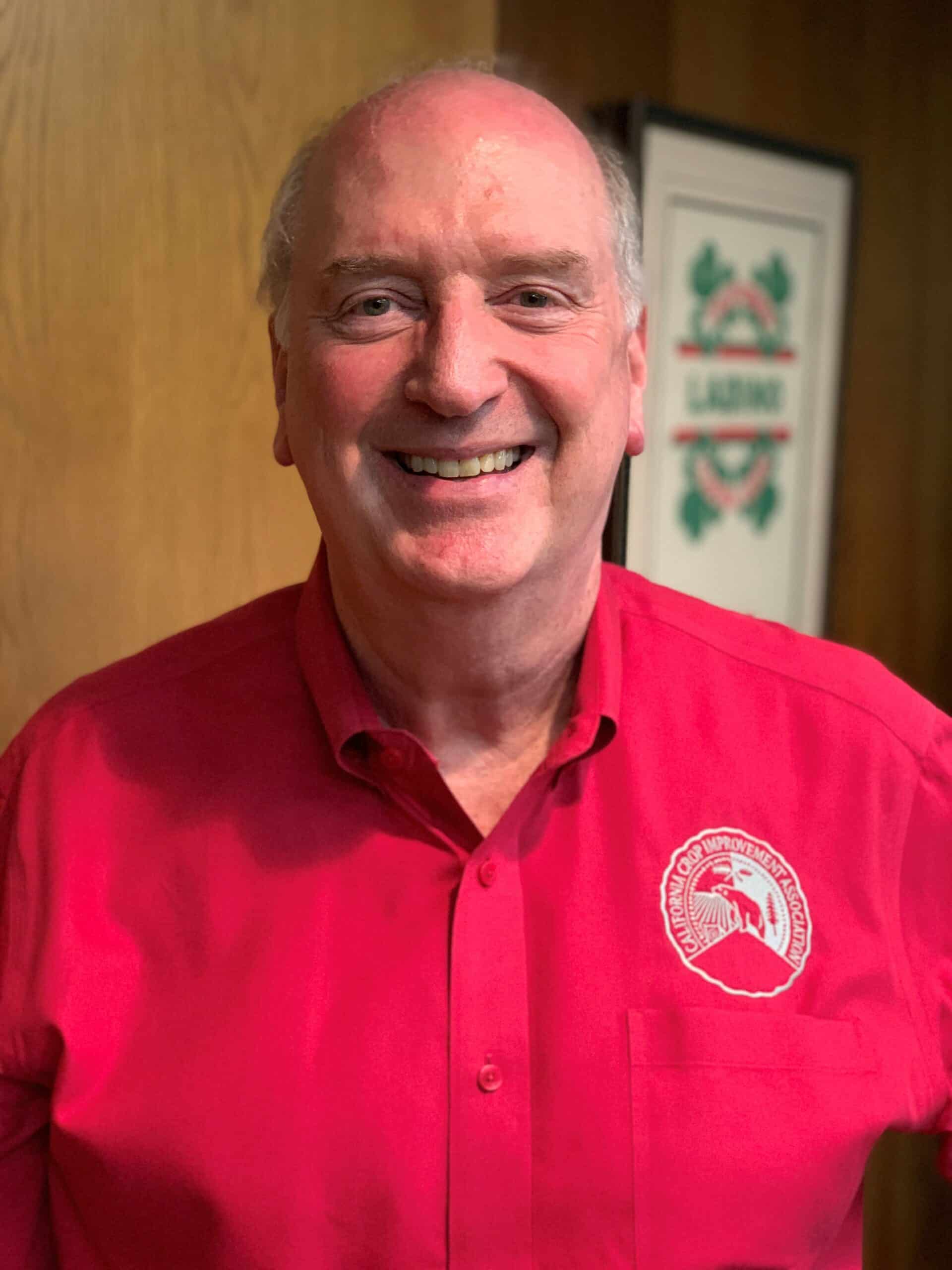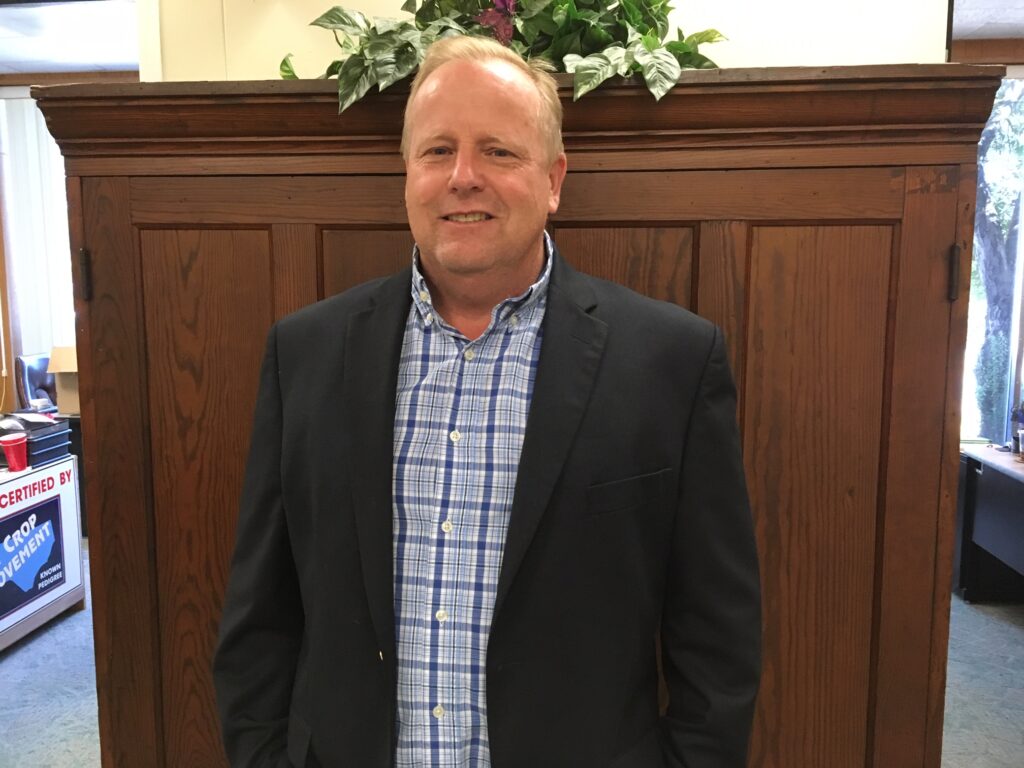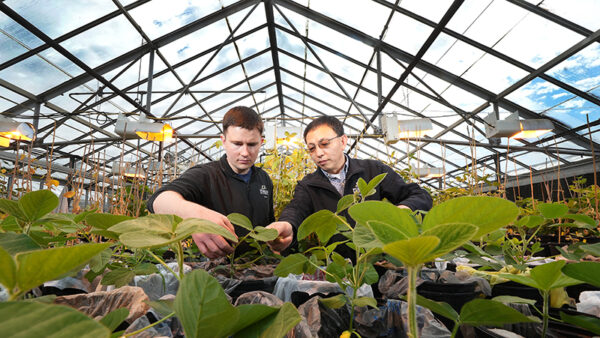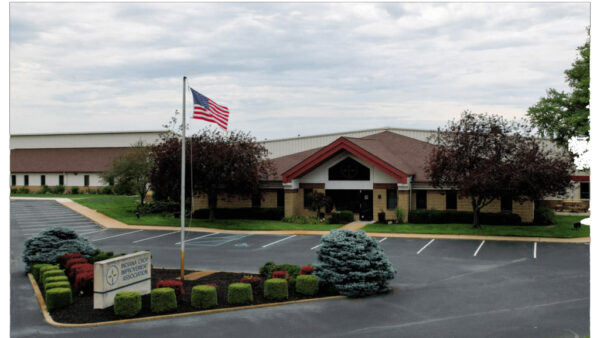In 1887, the U.S. Congress funded agricultural experiment stations to support various types of agricultural research under the direction of land-grant universities. By the early 1900s, universities were supplying a steady stream of new plant varieties with significantly higher yields compared to traditional varieties. Seed supplies of these new varieties were increased by foundation seed programs at each university and released to the public for sale to farmers. Each program had its own seed quality standards.
In 1919, representatives from 13 states and Canada met in Chicago to develop uniform seed certification standards to support the expanding domestic and international seed trade. They organized the International Crop Improvement Association to administer uniform seed standards. The association’s name was later changed to the Association of Official Seed Certifying Agencies (AOSCA).
“The authority to certify seed in each state is vested in one entity designated by that state’s general assembly,” says Allen Ernest, director, U.S. Department of Agriculture (USDA) Agricultural Marketing Service (AMS) Seed Regulatory and Testing Division. “About one-half of the states have given that authority to crop improvement associations. The remaining states have given certification authority to a department in their land grant universities or a unit of state government, typically that state’s department of agriculture.”
Seed improvement associations and other AOSCA vested member agencies provide certification services for field crops, turf grasses, vegetables, fruits, vegetatively propagated species, woody plants and forbs. Seed certification is the process by which a seed certifying agency gives official recognition to seeds produced of a cultivar or named variety under a limited generation system which ensures genetic purity, identity and a given minimum level of quality. Once seed has been certified, it qualifies for the official blue-colored certified seed tag and meets state, federal and international seed law requirements.
“If a seed certifying agency is found to be out of compliance with the Federal Seed Act, AOSCA works closely with USDA AMS to bring the agency back into compliance,” Ernest says.
Forty-four states have seed certifying agencies, including 23 vested crop improvement and seed grower associations. Seed World decided to take a look at some of the ways these crop improvement associations are growing for the future, and what challenges they’ll see.
Washington State Crop Improvement Association
Washington State Crop Improvement Association (WSCIA) operates under a Memorandum of Agreement to certify small grains, peas, chickpeas, lentils, forest reproductive materials and sorghum for the Washington State Department of Agriculture (WSDA), Yakima.
From 2007, when WSCIA field-inspected 59 varieties of wheat for certification, to 2018, when the association inspected 113 varieties, inspected acres has remained relatively constant between 60,000 and 65,000 acres.
“We’ve seen a shift of fewer registered class acres for inspection and an increase in certified acres,” says Manager Lauren Port. “There has been a lot of consolidation in the companies we work with, which has also allowed for consolidation of seed production.”
Hybrid rye is a new crop for WSCIA certification. The association has also added an option for experimental foundation production for varieties that are not yet released or are in some way not eligible for inclusion in a certification program. Over the course of the next few years, WSCIA will be working to build a better understanding of what the certified label means among the farmers that are purchasing certified seed.
“Washington has a high usage rate of certified seed for wheat and barley production,” explains Port. “Educating the new generation of farmers about the benefit of certified seed is important for maintaining that usage rate and Washington State’s high-quality wheat seed.”
California Crop Improvement Association
Traditional seed certification services comprise most of the California Crop Improvement Association (CCIA) business activities. Certified seed acreage in California over the past 11 years has fluctuated between 130,000 and 160,000 acres. These fluctuations follow normal business cycles of inventory build-up and sell-off. The four crops that “keep the lights on” at the CCIA are sunflower, alfalfa, rice and small grains.

“Export seed is critical to our survival, as demand for certification for seed sold domestically is not as common as it once was,” says Executive Director John Palmer. “I attribute this decline to an increase in sales of biotech-traited seeds and an improvement in quality assurance by the large seed companies. However, foreign nations still want third party verification that the seed they purchase is the genuine, high-quality article.”
Some other projects the CCIA has started working on include a hemp seed certification service and an online pinning map.
“Our online pinning map, popular among sunflower seed producers, has also been adopted by users in other states to track placement of seed crops that require isolation from like crops that might cause contamination through pollen transfer,” Palmer says.
However, for the time being, the CCIA has temporarily closed its seed testing laboratory. Palmer anticipates re-opening the lab to conduct DNA testing of seed for verification of trueness-to-type as these technologies become available and more affordable.
“The availability of water in California will have a huge impact on the future of agriculture,” he says. “Over-population and a lack of political clout by the ag sector will also greatly change the shape of things to come. This is in addition to the relentless expansion of acres for trees and vines making it more difficult to plant seed crops such as hybrid sunflower in fields that have the requisite isolation. Row crop acreage is declining. We are currently exploring new opportunities for quality assurance programs in vegetable seed crops.”
North Carolina Crop Improvement Association
The North Caroling Crop Improvement Association (NCCIA) has slowly morphed in the last 20 years into a more customer-responsive organization. Traditional seed certification services are declining, while the demand for customer-specific seed quality service programs is increasing. NCCIA typically inspects 20 different crops encompassing approximately 100,000 acres annually, with big increases in the number of varieties offered for sale. In 2019, the association will inspect over 400 varieties; 10 years ago, the NCCIA inspected less than 200 varieties.
“Where we lost certification services in wheat and soybeans, we picked up significant seed quality services by performing soybean field inspection services for a few major seed companies,” says NCCIA Director Bill Foote. “Seed companies are operating on small margins and rely on organizations like NCCIA to provide seasonal, highly experienced seed specialists to help in times of peak labor demands.
“Industrial hemp (IH) is one of our newest types of ‚Äòniche’ seed certification. There is little if any IH seed grown in the state, but there is significant demand for high-quality IH feminized seed and clones. Feminized seed and clonal production are in their infancy and would benefit immensely if high-quality propagation material were available with the help of a responsible certification program.”

The most significant withdrawal of NCCIA services has been the suspension of its organic certification program about nine years ago due to its extreme cost. Strawberry certification has also been suspended due to lack of activity. The loss of these programs has been offset by large gains in sweet potato certification.
NCCIA is facing a few huge challenges that are common to most seed certifying agencies, including:
1) Increasing seed piracy activity.
2) Increasing number of varieties.
3) Privatization of plant breeding and variety releases.
4) Consolidation of seed providers.
5) Reduced participation in seed certification.
Foote believes that in North Carolina, some crops pirated seed is planted on 70% of the acres. Enforcement of intellectual property (IP) rights is not keeping up with the ever-increasing unlawful use of seed. Foote believes this trend will continue as long as universities continue to develop plant breeders.
Foote also anticipates use of newer microbiological technologies, i.e., gene editing and RNA silencing, will be a future influencer for the seed certification industry. On the flip side of these newer molecular technologies is consumer acceptance.
“Is gene-edited food acceptable in the United States?” he wonders. “Our technology is way ahead of most people’s understanding. People tend to fear the unknown, and food policy is heavily influenced by that fear.”













